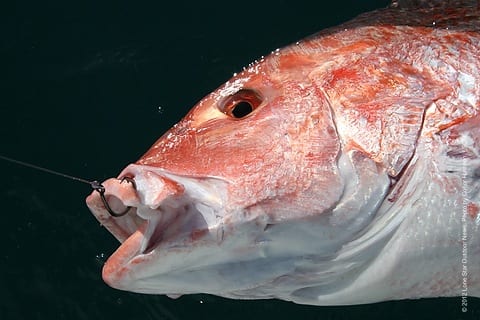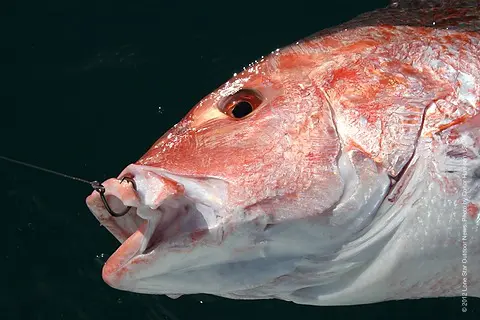 Gulf states are fighting back when it comes to the management of red snapper.
Gulf states are fighting back when it comes to the management of red snapper.
Sens. Mary Landrieu (D-La.) and Roger Wicker (R-Miss.) have filed legislation that seeks to transfer responsibility for the management of Gulf red snapper to the Gulf states.
The legislation (S.1161) comes two months after the governors of four Gulf states released a joint letter to the leadership of the U.S. House and Senate stating that federal management of Gulf red snapper is “irretrievably broken,” and calling for a coordinated Gulf states partnership for red snapper management.
“The red snapper fishery is tremendously complicated and has lurched from crisis to crisis under federal management with no end in sight,” said Chester Brewer, chairman of the National Government Relations Committee for Coastal Conservation Association. “We commend Sen. Landrieu for taking the lead to work through the complexity of this issue. She invested a great deal of time to craft a balanced, workable solution that allows the Gulf States to develop a new management approach.”
Federal management of red snapper reached a new low in 2013 when the Gulf of Mexico Fishery Management Council announced the shortest season ever, even though the snapper population is booming. In response, Louisiana, Florida and Mississippi announced various actions to join Texas’ long-standing rejection of federal regulations in state waters, prompting federal authorities to implement punitive measures for those states. Using an emergency rule process, the National Marine Fisheries Service reduced the recreational season to nine days off Louisiana and 12 days off Texas. Both states sued and a federal court overturned the action. The recreational season is now set at 28 days Gulf-wide.
“The reality is that federal fisheries management has a credibility problem. Red snapper has been under federal management for decades and our season this year is 28 days. No one should be satisfied with these results,” said Brewer. “We are grateful that Sen. Landrieu, Sen. Wicker and the Gulf governors heard the concerns of their citizens and pledged to find a better way.”
The Gulf of Mexico Red Snapper Conservation Act (S.1161) would establish a coordinated Gulf states partnership for red snapper management in which the states would fully comply with a management plan approved and adopted by the Gulf States Marines Fisheries Commission with minimal oversight from the federal government. The partnership would be similar to how striped bass are managed on the East Coast through the Atlantic States Marine Fisheries Commission.
“State-based fishery management has proven to be far more effective, and has engineered some of the greatest marine conservation victories in the country,” said Brewer. “We have faith in the states to be philosophically capable of not only conserving and managing robust fisheries, but also providing greater access to those resources for their citizens.”


